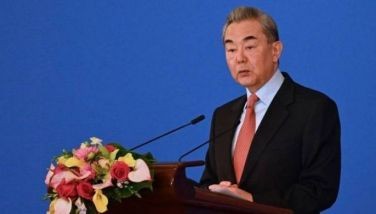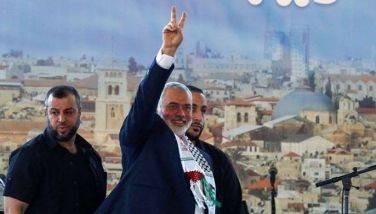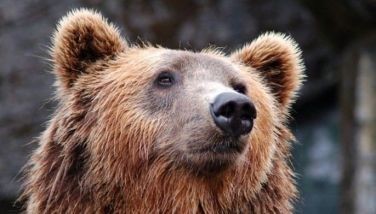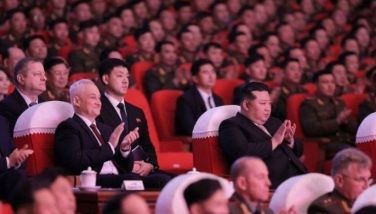At Pentagon, Afghan president thanks US troops
WASHINGTON — Afghanistan's president thanked US troops and taxpayers for their sacrifices in nearly 14 years of war, kicking off his visit to Washington with a stop at the Pentagon. He pledged that his impoverished country will not remain a burden to the West.
"We do not now ask what the United States can do for us," Ashraf Ghani said in remarks meant to bolster the Obama administration's conviction that Ghani is a reliable partner worth supporting over the long term.
"We want to say what Afghanistan will do for itself and for the world," he added. "And that means we are going to put our house in order."
Ghani and his chief executive, Abdullah Abdullah, were welcomed by Defense Secretary Ash Carter at a ceremony in the Pentagon's center courtyard.
It was a poignant setting for the start of Ghani's visit. On Sept. 11, 2001, terrorists hijacked an American Airlines jetliner and flew it into the Pentagon, killing all aboard and 125 people in the building. The US responded to the attacks on Washington and New York's World Trade Center by invading Afghanistan a month later, beginning the longest war in American history.
After the ceremonial welcoming, Ghani and Abdullah headed to the Camp David presidential retreat in Maryland for closed door meetings with Carter and Secretary of State John Kerry. Later in the week Ghani is to meet with President Barack Obama at the White House and address a joint meeting of Congress.
On their arrival at Camp David in the Catoctin mountains, Kerry said they were meeting in seclusion to discuss Afghanistan's future. Ghani emphasized what he called a new phase of the US-Afghan relationship.
"It's time for Afghanistan to reciprocate the gift that the United States has so generously provided over the years," he said. "Reciprocating the gift means owning our problems, solving them and asking of ourselves what we must do for ourselves and for the region."
At the Pentagon ceremony, Carter praised Ghani as a committed leader who knows that "Afghanistan's future is ultimately for the Afghans to grab hold of and for Afghans to decide."
Those themes emphasized by Carter and Ghani — that Kabul's new leaders are more reliable and appreciative of US assistance, and that the US alone cannot solve Afghanistan's problems — are central to the administration's approach to carrying out President Barack Obama's pledge to end the war.
Obama has promised to remove the remaining US troops from Afghanistan by the end of his presidency. But deficiencies in the Afghan security forces, heavy casualties in the ranks of the Afghan army and police, a fragile new government and fears that Islamic State fighters could gain a foothold in Afghanistan have combined to persuade Obama to slow the withdrawal.
Instead of trimming the current US force of 9,800 to 5,500 by the end of this year, US officials say the administration now might keep many of them there well into 2016. Obama has said that after that, the US would only maintain an embassy-based security force in Kabul of perhaps 1,000 troops.
Ghani needs a firm commitment of American support in his fight against the Taliban and other insurgent groups, including an Islamic State affiliate, which he fears is finding a foothold in Afghanistan. With that in mind, Ghani proclaimed at the Pentagon ceremony yesterday that the US is supporting the winning side.
"We die. But we will never be defeated," Ghani said. "Terrorism is a threat. It's evil. But we the people of Afghanistan are willing to speak truth to terror by saying no, you will never overwhelm us, you will never subdue us. We are going to overcome."
"And in this endeavor our partnership with the United States is foundational because we will be the first line of defense for freedom globally," he added.
Ghani's relationship with Washington stands in stark contrast to that of his predecessor, Hamid Karzai, whose antagonism toward the US culminated in a refusal to sign security agreements with Washington and NATO before leaving office last year. Ghani signed the pacts within days of becoming president in September, and has since enjoyed a close relationship with American diplomats and military leaders.
- Latest
- Trending
































